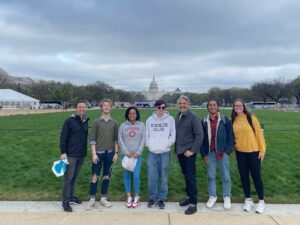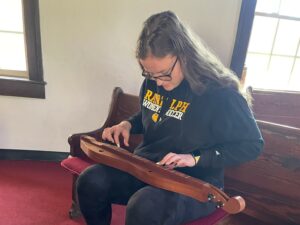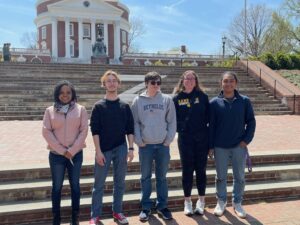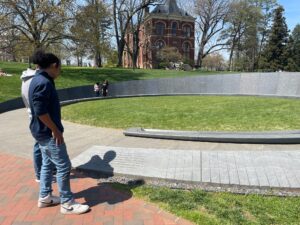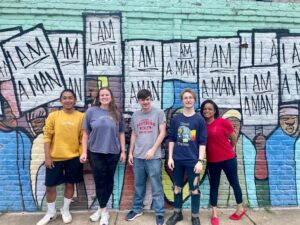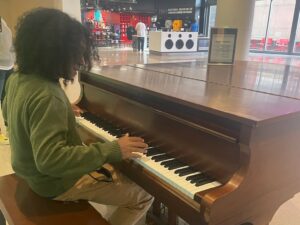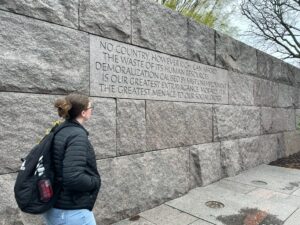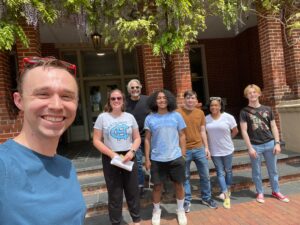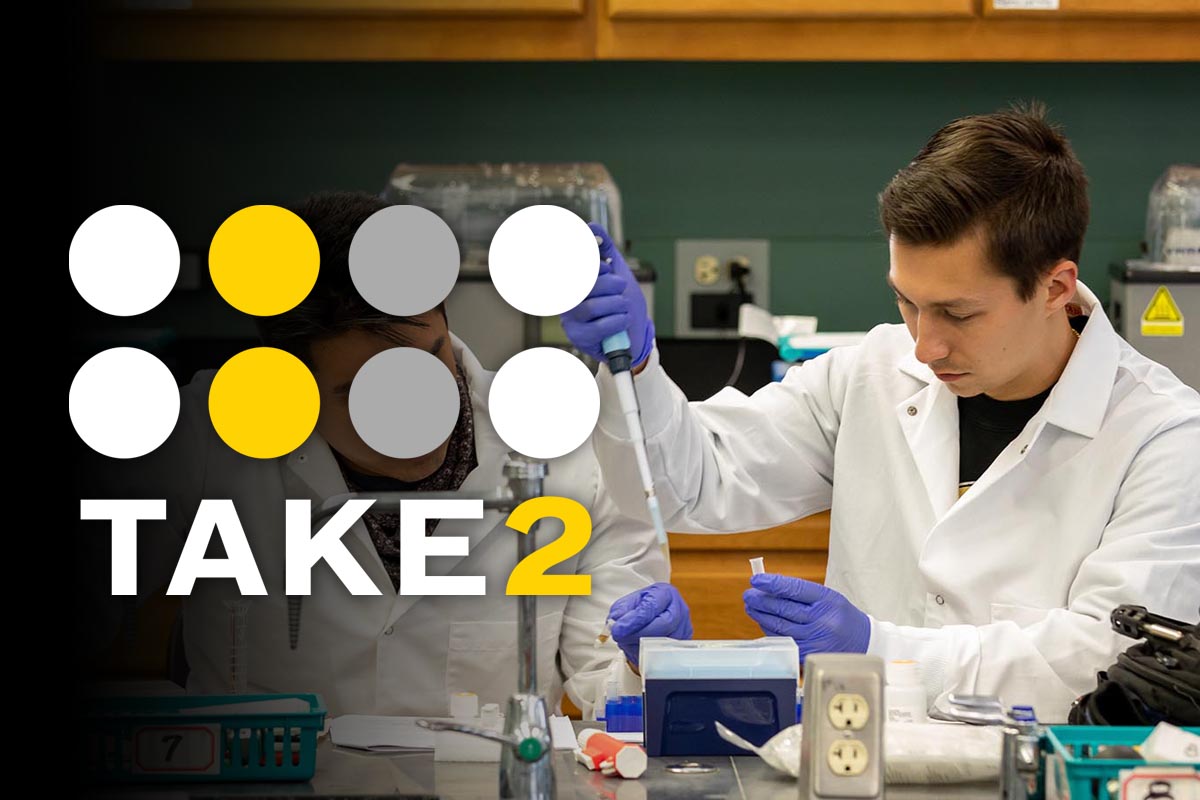American Culture Program explores labor, leisure and music in the U.S.
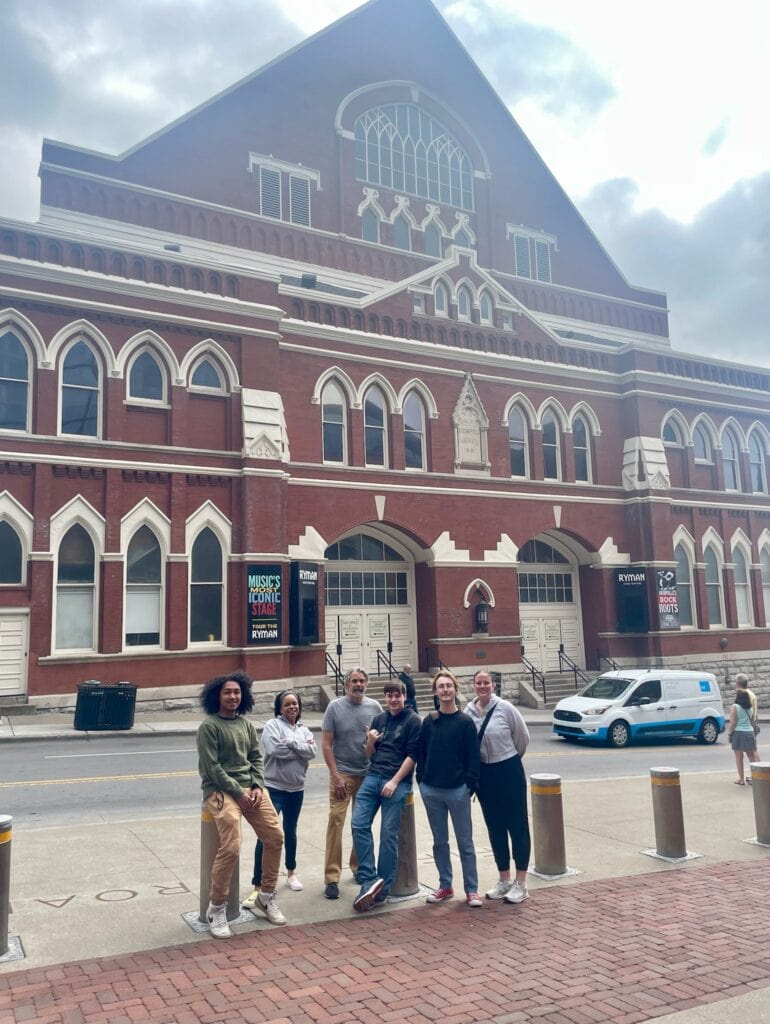
Students and Randolph professor Julio Rodriguez pose in front of the famed Ryman Auditorium in Nashville
Workers’ Dignity, a Nashville-based organization, has fought for economic justice and dignity since 2010, claiming historic victories against high-profile employers, landlords, and developers.
The work continues today.
A group of Randolph students recently got a firsthand look at the group’s efforts during a trip to Tennessee. It was all part of their studies in the American Culture Program, which for the past two years has focused on labor, leisure, and music in the United States.
“We attended what they call their workers’ night, basically a training where folks can learn what their rights as workers are, and we witnessed them planning an action to fight unpaid wages by a construction company in Nashville,” said Connor Kenaston, a professor of history and Randolph’s Ainsworth Visiting Scholar of American Culture.
“The people who had not gotten paid were sitting 10 feet from us, organizing for their rights, and we got to see it firsthand. It was a powerful experience.”
The American Culture Program works on a two-year cycle, so Kenaston and professor Julio Rodriguez have taught and traveled with two different groups of students.
Their studies examined how the balance between labor and leisure has shifted in the past, and what that looks like today. They also looked at current unionization drives in businesses ranging from Starbucks to Minor League Baseball.
“We as a society put this pressure on ourselves to work harder than anyone and put more hours in at the office than our coworkers if we want a raise or to be recognized,” said Madeline Freshour ’25, a biology and history double major. “This goes into the stigma that we have created as a society that if you are not ‘producing’ something tangible then you cannot be working.
“We dove deep into this dynamic between the reality of work and how we believe work looks in our lives,” she added. “It altered the relationship I have with work.”
Their Tennessee trip included a stop in Knoxville, where they met with Bleu Copas, a veteran who helped bring down “don’t ask, don’t tell” and co-founded the Appalachian Equality Chorus, and Memphis, where they talked with local Teamsters and visited the Stax Museum of American Soul Music.
With each stop, students saw how music and labor activism have contributed to the long and ongoing struggle for racial and economic justice.
“People often think of the Civil Rights Movement and labor rights movement as two distinct movements, but it’s a really powerful example of how, actually, these two things align more often than not,” Kenaston said. “And they still do today.”
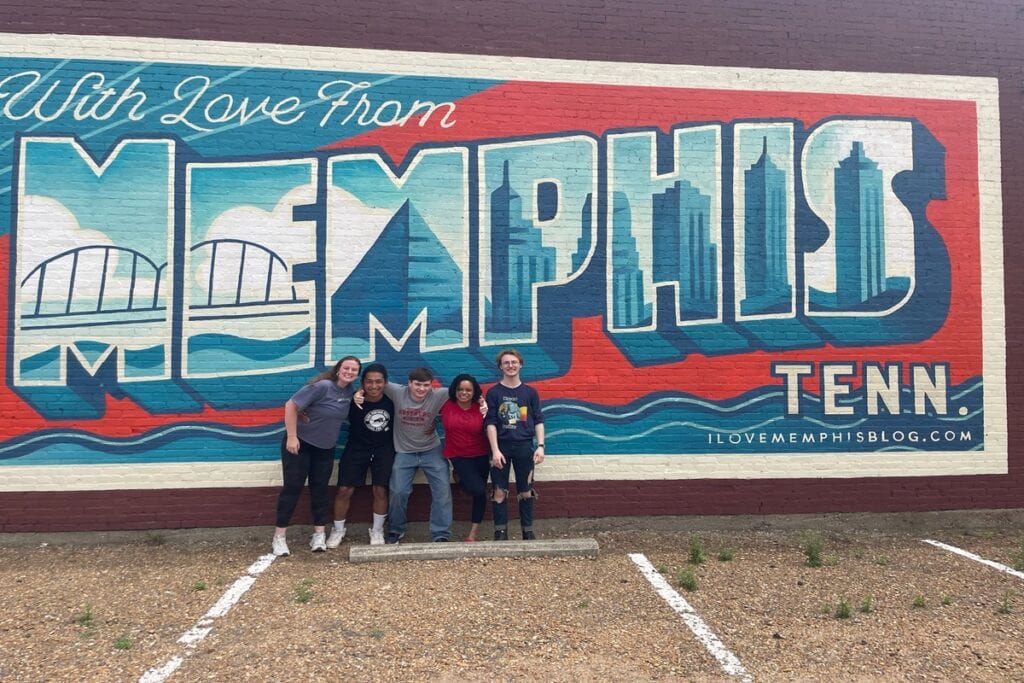
Madi Tyree ’23, ’24 MACSL was enrolled in the program during the spring of 2023 and called it one of the highlights of her time at Randolph.
“Dr. Kenaston and Dr. Rodriguez did an amazing job creating an environment where everyone feels accepted,” she said. “We really capitalized on both the labor and leisure aspects of the program. We worked hard on assignments, were attentive in lectures and presentations, actively participated, and even kept detailed journals of our experiences. Leisure-wise, we had so much fun. Nothing will ever compare to dancing to the blues in Memphis with some of my best friends from college.”
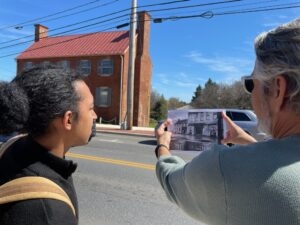
Students also explored downtown Lynchburg, toured museums in Washington, D.C., took a workshop with an old-time music enthusiast in Charlottesville, and had lunch with Harry Marino, an organizer of last year’s Minor League Baseball unionization drive.
Guest speakers were brought in often, sometimes virtually. Last spring, they ranged from those involved in a 2022 strike of graduate students in California, the largest higher-education strike in U.S. history, to the 2023 strike of tech workers at The New York Times.
This year, Kenaston tapped into resources right here at Randolph, enlisting fellow faculty members to discuss their work. English professor Laura-Gray Street, for example, spoke about her poetry focusing on women’s labor and strikes in North Carolina textile mills, and psychology professor Sara Beck discussed her work in the music industry.
“I’ve grown to really appreciate the community this program fosters,” said Herald Holden ’25, a history major. “There are only a handful of students, and we spend a lot of time together, so you’re just as close to the material as you are to the other people learning with you. This communal learning makes the program a really unique experience where we’re all learning together and learning from each other.”
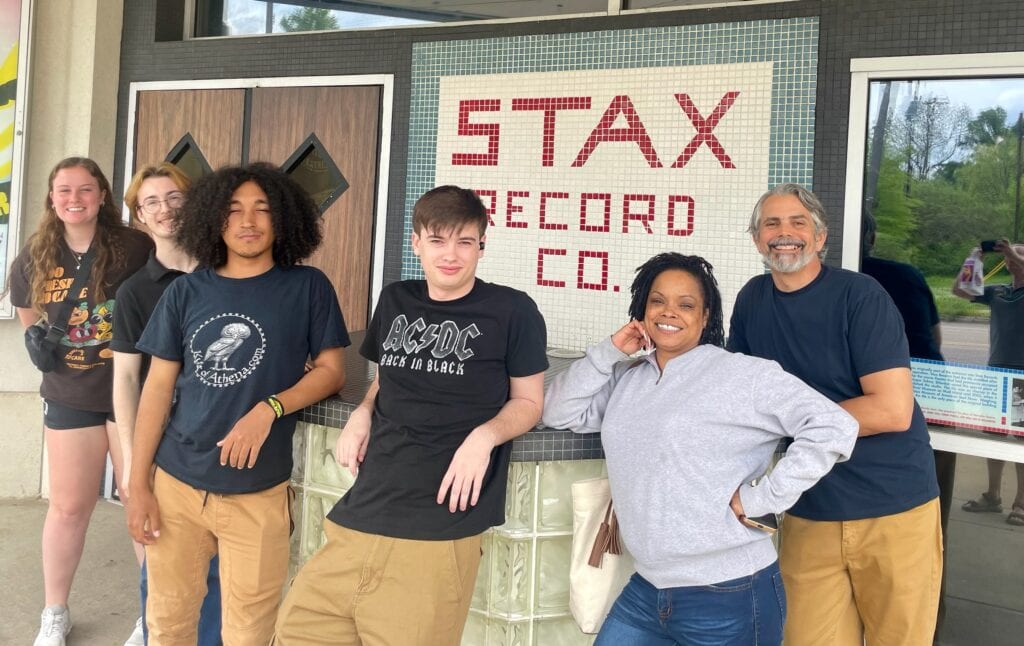
Kenaston, a West Virginia native, has been interested in social, cultural, and labor history—and music’s role in all of them—since his undergraduate years at Yale, where he studied history. He also holds a master’s and PhD, both in history, and a graduate certificate in American studies from the University of Virginia.
It became even more personal for him in 2020, when he helped launch United Campus Workers of Virginia, a union for public higher education workers in the state.
Just as they were trying to go public with the organization, the pandemic happened, and exposed an entirely new facet of labor in the United States.
“It was such a reflective moment for a lot of people, who looked at the relationships they had with their jobs,” Kenaston said.
Some moved to hybrid work, while others quit their jobs completely. Certain workers became essential, yet weren’t always treated that way by the general public.
Across the board, many workers began to question what they wanted out of life.
It only made sense for Kenaston to pitch the topic for the American Culture Program.
“College students are about to embark on a new journey,” he said, “and what a great opportunity to help them really reflect on what they want from their career and what they want from their life.”
